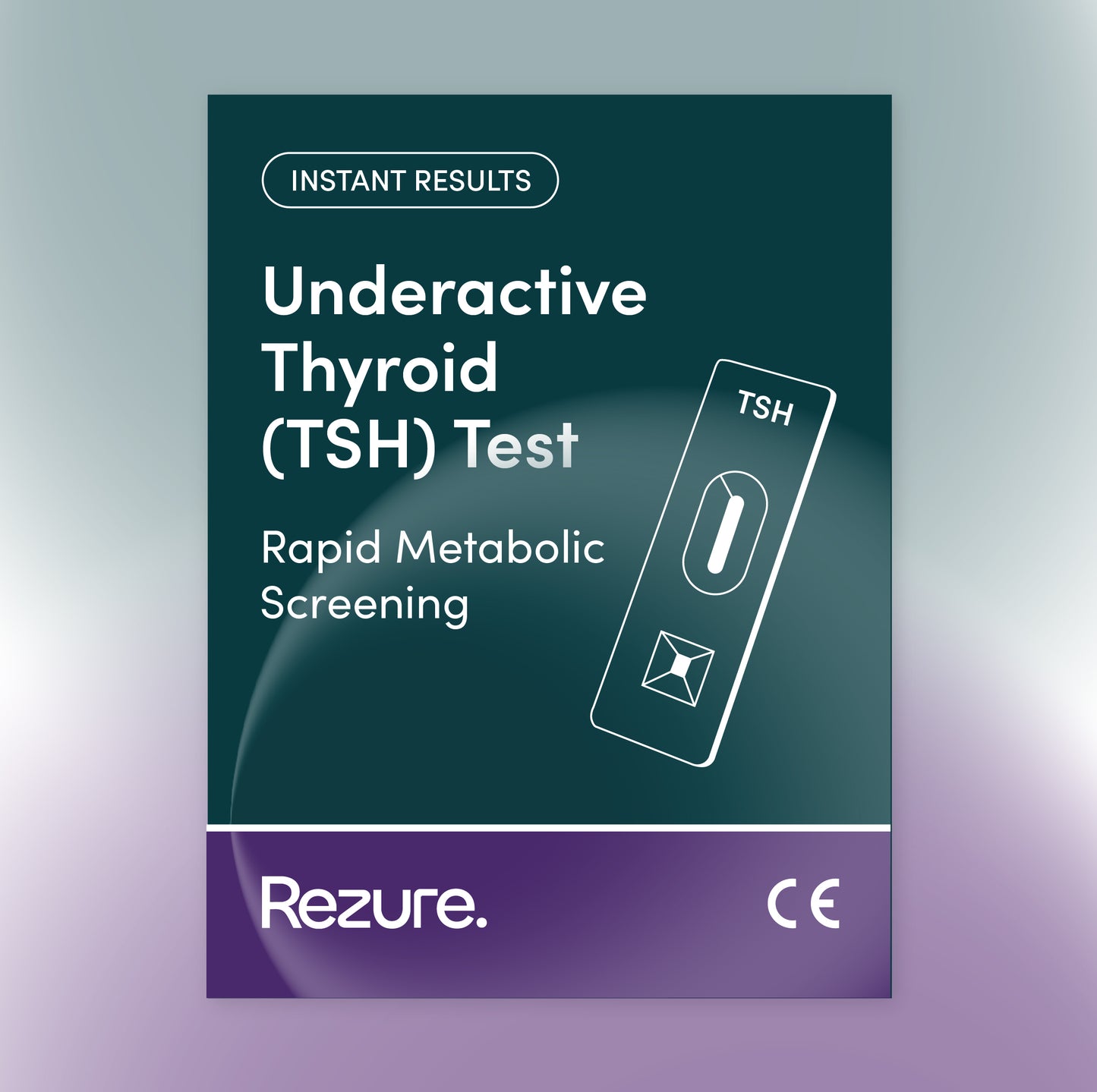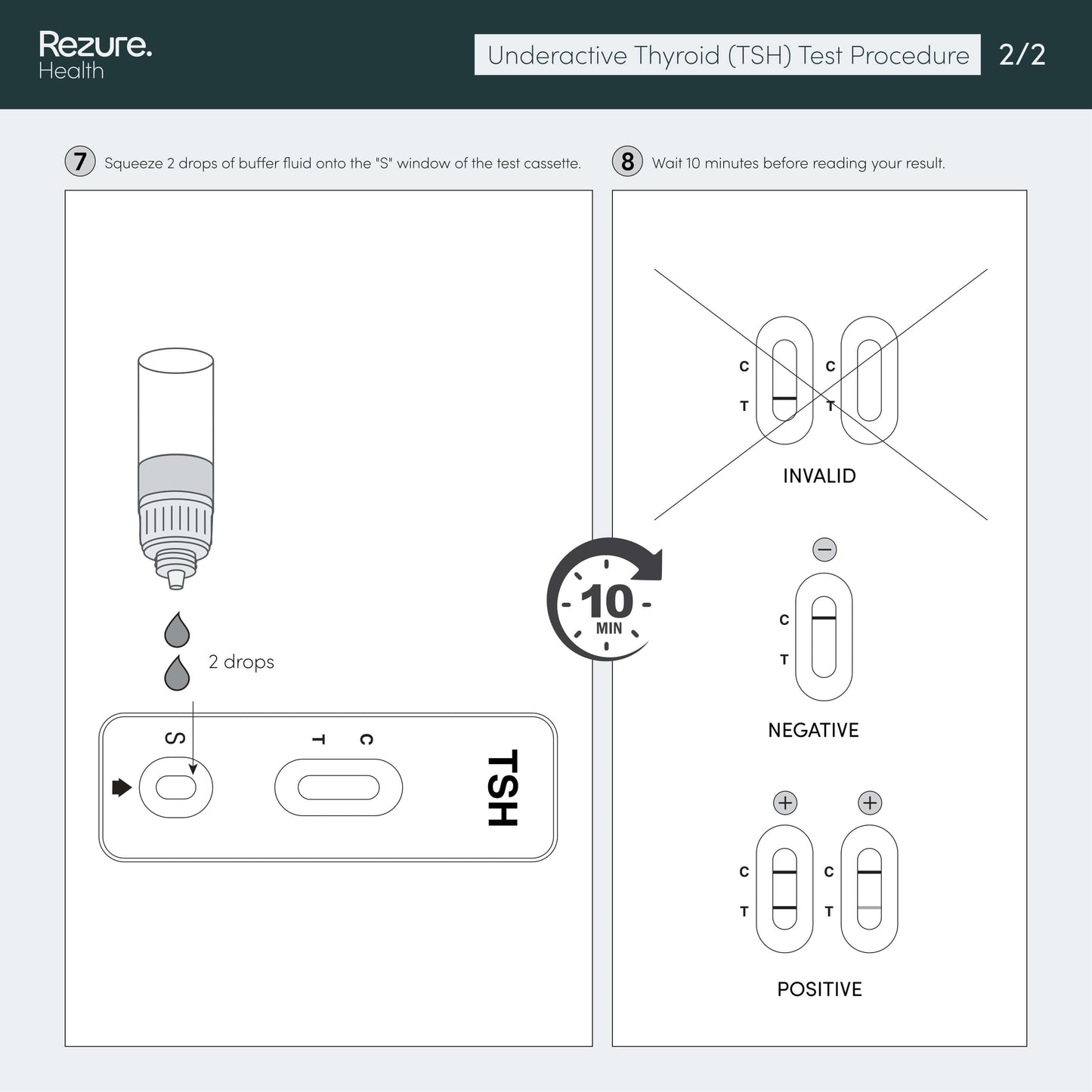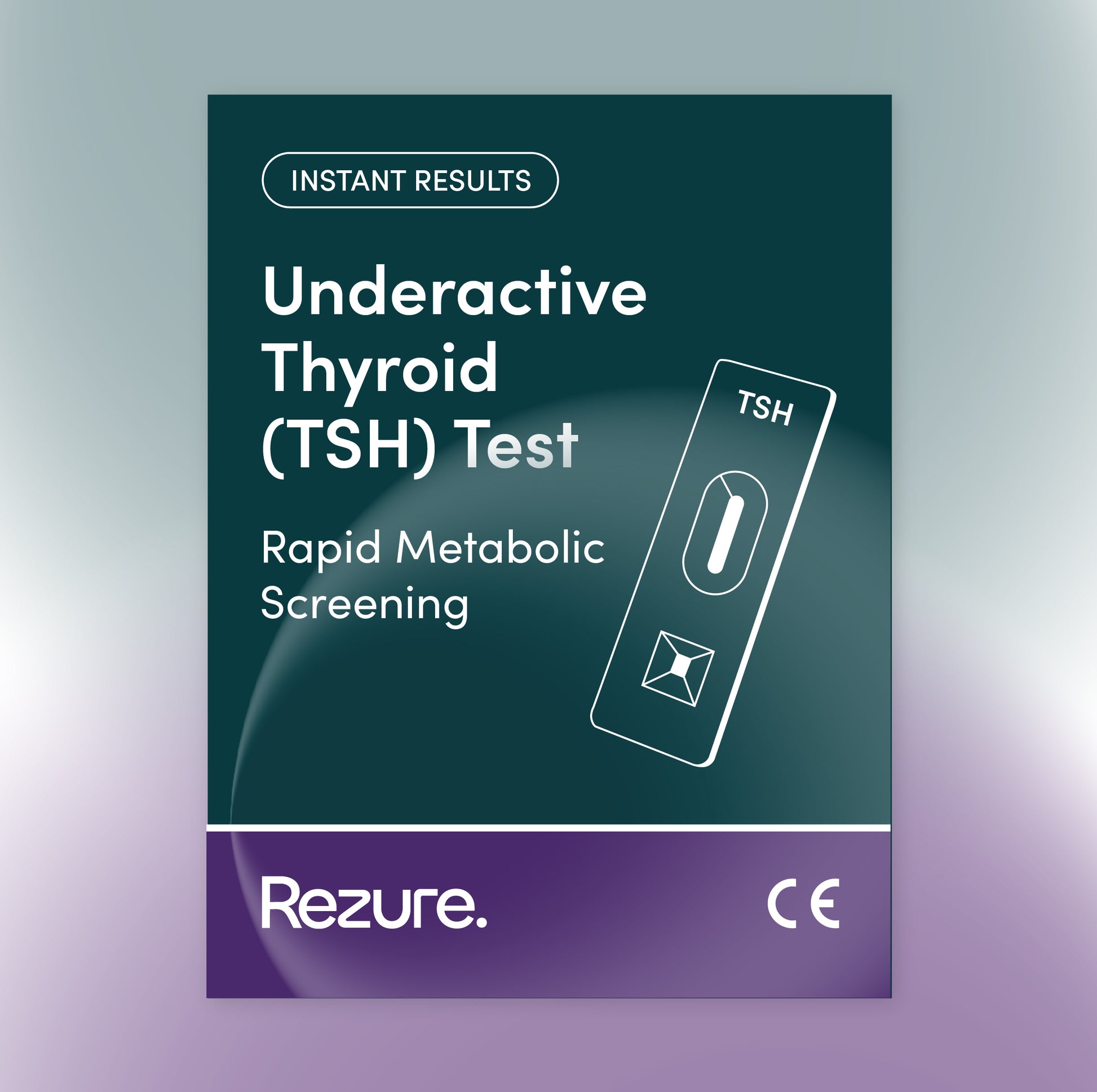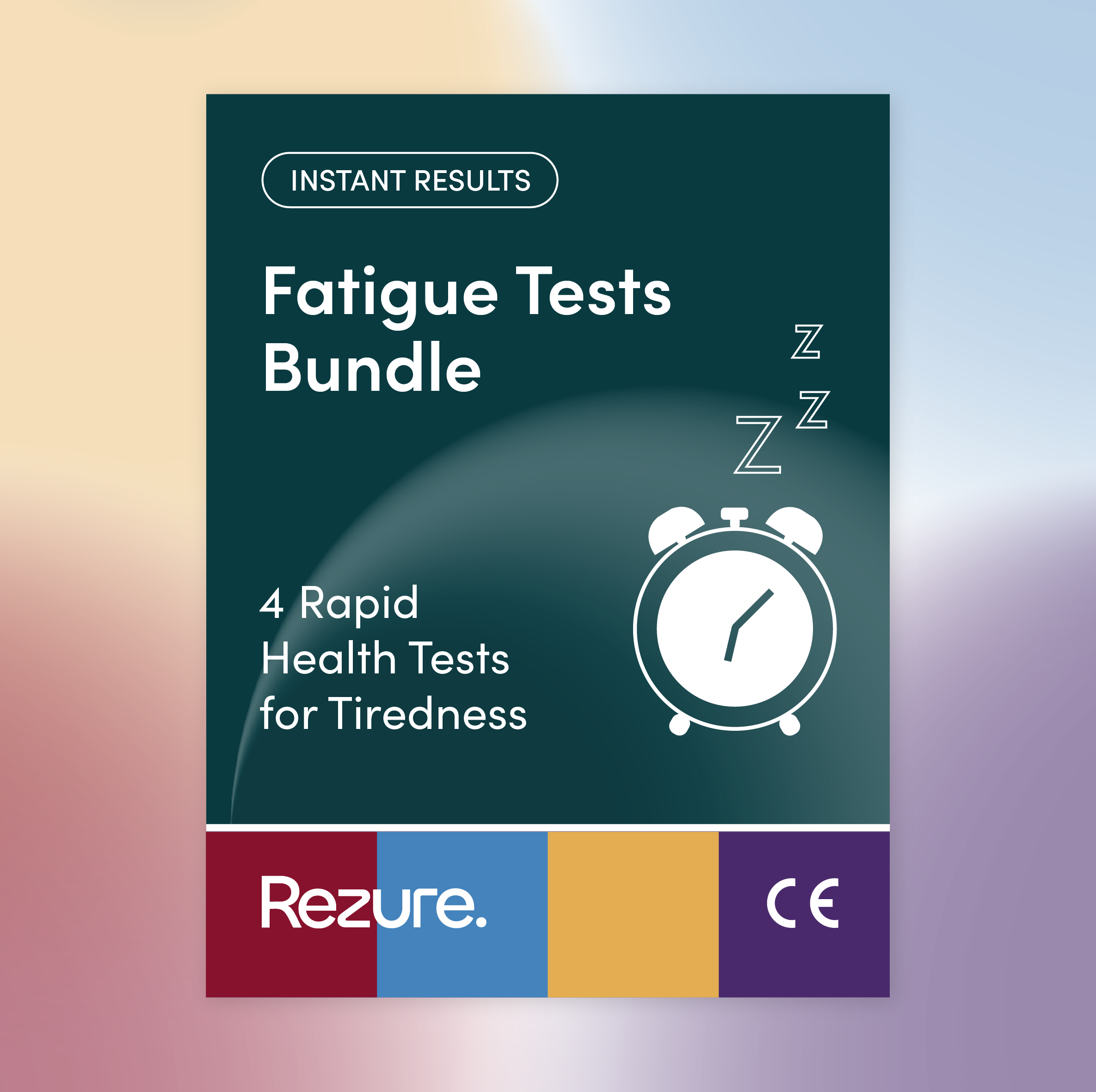




About this test
Brand we're currently stocking: Rezure
The thyroid gland is responsible for regulating your body’s metabolism and energy levels. The hormones it produces affect almost every part of the body, including heart rate, weight, and mood.
Affecting at least 2 in every 100 people in the UK, hypothyroidism is a cause of an array of common health issues. This includes lethargy, muscle weakness, depression, and even fertility issues.
This easy-to-use home test kit uses a small blood sample to measure how much Thyroid Stimulating Hormone (TSH) is in your system. Typically, elevated TSH levels indicate your thyroid gland might be underactive.
Certain risk factors increase your likelihood of developing an underactive thyroid. Women, those who are pregnant, and those over 60 are more likely to be affected, but genetics play a big part too.
Finding out if your TSH levels are abnormally high is the first step on your journey to better well-being. With everything you need in one small box, you’ll be empowered to seek treatment early for the best health outcomes.
Brand of test may vary.
How this test helps you
How to use this test
Wash your hands with soap and warm water.
Bring the foil pouch to room temperature. Then, open it and remove the test cassette.
Carefully remove the plastic cap from the lancet. Be careful not to fire the lancet.
Clean your fingertip with an alcohol-dampened cotton pad and massage from base to tip to enhance blood flow.
Firmly press the lancet against the cleaned part of your finger and press the trigger button.
Keep your hand down and massage your fingertip to form a drop of blood.
Without pressing the pipette bulb, place it in contact with the blood drop until it reaches the indicated line.
Transfer the collected blood into the sample well of the device by pressing the pipette bulb.
Wait for the blood to fully dispense into the well.
Using the dropper bottle, add 2 drops of buffer solution into the sample well.
Allow the test to sit undisturbed for 10 minutes.
This ensures the sample and diluent interact correctly for accurate results.
After exactly 10 minutes, check the result window.
Two coloured lines under 'T' (Test) and 'C' (Control) indicate a positive result, suggesting a higher-than-normal level of TSH in your blood.
Consult a doctor for further advice.
One coloured line under 'C' (Control) indicates a negative result, meaning the level of TSH in your blood is within the normal range.
If no line appears, or only a line under 'T' (Test) appears, the result is invalid.
Repeat the test with a new device and a fresh blood sample.









